By Treatment
- Panchakarma Treatment
- Liposuction Surgery
- Hepatitis Treatment
- Liver Transplant
- Liver Fibrosis
- Liver Tumor
- Liver Cancer
- Liver Cirrhosis Treatment
- Coronary Artery Bypass Grafting Surgery
- Heart Valve Replacement
- Angioplasty
- Aortic Valve Replacement
- ASD/VSD closure surgery in India
- Cardiac Tumours in Children
- Cardiac Ablation Surgery
- Renal Angiogram
- Cardiac Tumour Treatment
- Pacemaker Implant
- CRT-D Implant
- CRT-P Implant
- Hernia Surgery
- Spine Surgery
- Spine Tumor Surgery
- Spinal Cord Cancer
- Cervical Spine Surgery
- Spinal Fusion Surgery
- Facet Joint Spine Surgery
- Knee Replacement Surgery
- Rhytidoplasty Surgery in India
- Hip Replacement Surgery
- Shoulder Replacement Surgery
- Cataract Surgery
- TAVR (Transcatheter Aortic Valve Replacement) Treatment in India
- Breast lift surgery in India
- Face Lift Surgery
- Rhinoplasty surgery in India
- Yoga and Meditation in India
- Thigh Lift surgery in India
- Breast augmentation
- Robotic Knee and Hip Replacement Surgery
- Mentoplasty Treatment in India
- Naturopathy Treatment in India
- Arthroplasty surgery in India
- Cordotomy Surgery
- Arthroscopy Surgery in India
- Aromatherapy in India
- Macular Degeneration
- Spinal Decompression Surgery
- Penile Implant Surgery in India
- Erectile Dysfunction Treatment in India
- Diabetes cause Impotence Treatment India
- Peyronie's treatment in India
- Urethroplasty Surgery in India
- Artificial Urinary Sphincter Surgery in India
- Shockwave Therapy for Erectile Dysfunction
- Phalloplasty Surgery in India
- Penectomy Surgery India
- Priapism Treatment in India
- Multiple Sclerosis
- Hysteroscopic Surgery
- LEEP (Loop Electrosurgical Excision Procedure) Treatment
- Vaginal Hysterectomy Surgery
- Lasik Eye Surgery
- Laparoscopic Myomectomy
- Glaucoma Treatment in India
- Hysteroscopy Treatment
- Astigmatism Treatment in India
- Corneal Transplant
- Cochlear Transplant
- Dialysis & Kidney Transplant
- Hysteroscopic Myomectomy
- Tympanoplasty Surgery
- Block Dissections of Neck, Endolymphatic Sac in India
- Interstitial Cystitis Treatment
- Total Laparoscopic Hysterectomy (TLH)
- Multiple Scoliosis Surgery
- Myomectomy Treatment
- Stapedectomy Surgery
- Thyroid Cancer Treatment
- Dilation and Curettage
- Trigger Point Injection (TPI)
- Deep Brain Stimulation (DBS)
- Bone Marrow Transplant
- Scoliosis Surgery in India
- Spondylolisthesis Spine Treatment
- Colposcopy
- Ossiculoplasty surgery in India
- Laparoscopic Uterine Suspension Surgery
- Rotator Cuff Tear Surgery
- Laryngectomy Surgery in India
- Micro Laryngeal surgery in India
- Laparoscopic Supracervical Hysterectomy
- Pelvic Laparoscopy Surgery
- Functional Endoscopic Sinus Surgery in India
- Cardiology
- Liver Disease Treatment
- Osteoarthritis Spine Treatment
- Arthrodesis Surgery
- Gallbladder Cancer Treatment
- Pancreatic Cancer Treatment
- Meningiomas Treatment
- Ovarian Cancer Treatment
- Testicular Cancer Treatment
- Anterior Cruciate Ligament (ACL) Surgery
- Bone Marrow Cancer
- Orthopaedics & Joint Replacement
- Degenerative Disk Spine Treatment
- Herniated Disc Spine Treatment
- Neurology and Neurosurgery
- Anal Cancer Treatment
- Kidney Cancer
- Minimally Invasive Spine Surgery
- Bladder Cancer Treatment
- Stomach Cancer Treatment
- Mouth Cancer Treatment
- Bone Cancer Treatment
- Throat Cancer Treatment
- Breast Cancer Treatment
- Chemo Treatment
- Colon Cancer Treatment
- Esophageal Cancer Treatment
- Obstetrics & Gynaecology
- Herniated Disc Surgery
- Aortic Stent Grafting
- Head and Neck Cancer Treatment
- Artificial Spine Lumbar Disc Replacement
- Spine Osteotomy
- Lumbar Laminectomy for Spine or Spinal Decompression
- Lungs Cancer Treatment
- Cancer Treatment
- Breast Surgery
- Cardiothoracic & Vascular Surgery
- Head & Neck Cancers
- Prostate Cancers Treatment
- Neuroscience
- Heart Transplant
- Liver Surgery
- Pediatric Neurosurgery
- Acute Leukemia
- Coronary Angiogram
- End-Stage Liver Disease Treatment
- Peripheral Angioplasty
- Cardiac Resynchronization Treatment
- Radiofrequency Ablation
- Automatic Implantable Cardioverter Defibrillator
- Percutaneous Transvenous Mitral Commissurotomy
- Coronary Angioplasty
- Cerebral Angiogram
- Peripheral Angiogram
- Angiography
- Eyelid Surgery
- TLIF Surgery
- Ear Surgery
- Body Lift Surgery
- Endoscopic Disc surgery
- Endoscopic Cranial Surgery
- Stroke Treatment
- Renal Angioplasty
- Leukemia Treatment
- Peripheral Neuropathy Treatment
- Parkinson’s disease
- Cardiac Catheterization
- Percutaneous Transluminal Angioplasty
- Pericardial Cysts
- Cardiac Arrest Treatment
- Bariatric & Metabolic Surgery
- Deceased Donor Liver Transplant
- Living Donor Liver Transplant
- Electrophysiology Study (EPS)
- Shoulder and Elbow Replacement
- Urology
- Pediatric Heart Surgery
- Cardiac Surgery
- Vascular Surgery
- Endoscopic Surgery
- Pacemaker Implantation
- Urological Oncology
- Alzheimer’s Disease Treatment
- Reconstructive Urology
- Endocrinoly
- Lumbar puncture
- Diabetes Stem Cell Treatment
- Pediatric Liver Transplant
- Endocrine Stem Cell Treatment
- GI surgery
- GI Oncology
- Hemodialysis
- Hemorrhoids Surgery
- Endoscopy
- Gastric Bypass Surgery
- Renal Failure
- Headache
- Kidney Biopsy
- Sleep Disorders
- Craniotomy Surgery
- Atrial Fibrillation Surgery
- Autism - Stem Cell Treatment
- Heart Implants
- Neuropathy
- Robotic Urology
- Blood Clot Brain Surgery
- Laser Urological, Surgery
- Brain Haemorrhage Treatment
- Retinal Surgery
- Laser Eye Surgery
- Heart Valve Disease
- Renal Transplant
- Hematology
- Thalassemia Treatment
- Sports Injury
- Sickle Cell Anemia
- Cosmetic and Plastic Surgery
- Robotic Joint Replacement
- Multiple Myeloma
- Pediatric oncology
- Medical oncology
- Minimal Invasive Brain Surgery
- Open Heart Surgery
- Rheumatology & Clinical Immunology
- Lymphoma
- Neonatology
- Laparoscopic Surgery
- Radiology
- Blood Cancer
- Dermatology and Cosmetology
- Paediatric Cardiology
- IVC Filter Insertion Procedure
- Minimal Access Surgeries
- Paediatric & Adolescent Endocrinology
- Dentistry and Maxillofacial Surgery
- Diabetology
- Interventional Cardiology
- Reconstructive Surgery
- Dietetics and Nutrition
- Oncology
- Radiation Oncolgy
- Aplastic Anemia
- Gynaecology - Oncology
- Brain Tumor Surgery
- Ophthalmology
- Abdominal Surgery
- Haemato Oncology
- Onco-Neurosurgery
- Thoracoscopic surgery
- Acute Leukaemia Treatment
- Kidney Failure Treatment
- Oncology & Oncosurgery
- Hepatobiliary
- Gland Surgery
- Liver Biopsy
- Gastroenterology
- Nephrology
- Interventional Radiology
- Transplant Nephrology
- Urological Cancers
- Neurovascular Surgery
- Internal Medicine
- Kidney Stone
- Heart Surgery
- Radiosurgery
- ENT & Cochlear Implant
- Chronic Liver Disease
- Cosmetic Eye Surgery
- Minimally Invasive Surgery
- Spa therapy Treatment in India
Urethroplasty Surgery in India
Urethroplasty is a surgical procedure that is performed to repair or reconstruct the urethra. The urethra is the tube that carries urine from the bladder out of the body. Urethroplasty is typically done to treat conditions where the urethra is narrowed or obstructed, such as strictures (narrowing of the urethra), urethral injuries, or other abnormalities that affect the urethra.
The procedure involves making an incision in the area of the narrowed or damaged urethra, removing the affected tissue, and then reconstructing the urethra to restore its normal size and function. Urethroplasty can be performed using various techniques, and the specific approach depends on the individual patient’s condition and the location and extent of the urethral issue.
Urethroplasty is considered the gold standard for treating complex urethral problems and is generally associated with good long-term outcomes. However, the exact procedure and recovery can vary depending on the patient’s condition and the surgical approach chosen by the urologist. It is essential to consult with a healthcare professional to determine the most suitable treatment for a specific urethral issue.
Who needs urethroplasty?
The specific need for urethroplasty will depend on the individual’s unique medical history, the severity of their condition, and the assessment of an urologist or a specialized surgeon. The procedure aims to restore proper urinary function and alleviate related symptoms or complications. It is essential to consult with a healthcare professional to determine if urethroplasty is the appropriate treatment option for a particular patient.
Urethral Strictures: Urethral strictures are narrowings or blockages of the urethra that can be caused by various factors, including inflammation, trauma, infection, or previous surgeries. When strictures become severe and cause urinary symptoms or obstruction, urethroplasty may be necessary to widen or reconstruct the urethra.
Trauma: Urethroplasty can be required after traumatic injuries to the urethra, such as those resulting from accidents, falls, or medical procedures.
Congenital Abnormalities: Some individuals are born with congenital urethral abnormalities that may require surgical correction, and urethroplasty can be a part of that process.
Failed Previous Urethral Procedures: If previous attempts to address urethral problems, such as urethral dilation or endoscopic treatments, have failed or resulted in recurrent strictures, urethroplasty may be recommended.
Severe Urinary Symptoms: When urethral strictures or abnormalities lead to symptoms like difficulty urinating, weak urine stream, frequent urinary tract infections, or urinary retention, urethroplasty may be considered as a treatment option.
Chronic Infections: Repeated urinary tract infections caused by urethral issues may necessitate urethroplasty to improve urinary flow and reduce the risk of infections.
Urethroplasty Procedure
The specific details of the urethroplasty can vary based on the individual patient’s condition and the surgical approach chosen by the urologist or surgeon. Recovery times and potential complications can also vary. Patients should follow their healthcare provider’s instructions for post-operative care and attend follow-up appointments as recommended to ensure a successful recovery.
Anesthesia: The procedure is performed under anesthesia, which can be either general anesthesia (where you are asleep) or local/regional anesthesia (numbing a specific area of your body).
Incision: A surgical incision is made in the area where the urethral stricture or abnormality is located. The location and size of the incision will depend on the individual’s specific condition.
Exposure and Evaluation: The surgeon carefully exposes the damaged or narrowed portion of the urethra and evaluates its condition.
Repair or Reconstruction: The surgeon may employ various techniques to repair or reconstruct the urethra, which can include:
- Excision and end-to-end anastomosis: In cases of short strictures, the narrowed portion is removed, and the healthy ends of the urethra are reconnected.
- Tissue grafts: In cases of longer strictures or more extensive damage, tissue grafts (usually taken from other parts of the body) may be used to widen or replace the damaged portion of the urethra.
- Flap procedures: Some complex cases may require the creation of a flap from surrounding tissues to reconstruct the urethra.
Stent or Catheter Placement: In many cases, a catheter or stent is inserted into the urethra to provide support and keep the repaired or reconstructed area open during the healing process. The type of catheter or stent used can vary depending on the surgeon’s preference and the specific situation.
Closure: The incisions made during the procedure are closed with sutures.
Drainage: A drain may be placed to remove any excess fluid or blood from the surgical site.
Dressing and Closure: The surgical site is dressed, and the incision is closed with sutures or staples.
Recovery and Monitoring: After the procedure, patients are monitored in the recovery area to ensure they are stable. You will typically need to stay in the hospital for a short period for observation.
Catheter Care: In the post-operative period, patients may need to have a catheter in place to allow for proper healing of the urethra. The catheter is usually left in place for a specific duration, and its care is essential.
Benefits and Risks associated
It’s important to have a thorough discussion with your healthcare provider to understand the specific risks and benefits associated with your unique situation. They can help you make an informed decision about whether urethroplasty is the right treatment for your condition and guide you through the pre-operative and post-operative care to optimize the results and minimize risks.
Benefits:
Improved Urinary Function: The primary benefit of urethroplasty is the restoration or improvement of normal urinary function. It can alleviate symptoms such as difficulty urinating, weak urine stream, and frequent urinary tract infections.
Prevention of Complications: Urethroplasty can prevent complications that may arise from untreated or poorly managed urethral strictures or abnormalities, such as recurrent infections, urinary retention, and kidney damage.
Better Quality of Life: Successful urethroplasty can lead to an improved quality of life by allowing patients to urinate more comfortably and without the restrictions imposed by urethral issues.
Reduced Dependence on Catheters: For individuals who relied on catheters to manage their urinary problems before surgery, urethroplasty can often eliminate the need for long-term catheter use.
Risks:
Infection: Like any surgical procedure, there is a risk of infection at the surgical site or within the urinary tract.
Bleeding: Surgical procedures can lead to bleeding, both during the surgery and in the post-operative period.
Urethral Stricture Recurrence: Although urethroplasty is effective in the majority of cases, there is a risk of stricture recurrence in some patients, necessitating further treatment.
Urinary Incontinence: In some cases, patients may experience temporary or, rarely, permanent urinary incontinence, especially if the surgery involves the sphincter muscles.
Erectile Dysfunction: In cases where the surgery involves the penile urethra, there is a potential risk of erectile dysfunction, although this is relatively rare.
Anesthesia Risks: As with any surgery, there are potential risks associated with anesthesia, such as allergic reactions, breathing difficulties, or adverse reactions to medications used.
Scarring and Cosmetic Concerns: Surgical scars can develop, which may be of cosmetic concern, especially in surgeries that involve the genital region.
Lengthy Recovery: Recovery from urethroplasty can be prolonged, and patients may experience discomfort or pain during the healing process.
Functional Outcomes: While urethroplasty aims to improve urinary function, the extent of improvement can vary from patient to patient, and not all patients may achieve the same level of function.
Recovery
Recovery after urethroplasty surgery is a crucial phase in the treatment of urethral strictures, aiming to restore normal urinary function and improve the patient’s quality of life. Following the procedure, patients typically experience some discomfort and swelling in the surgical area, which can be managed with pain medications and ice packs. The duration of hospital stay and catheterization time may vary depending on the complexity of the surgery. During the recovery period, patients are advised to refrain from strenuous physical activities and to maintain good hygiene around the surgical site. Close follow-up with a healthcare provider is essential to monitor progress and address any potential complications. Most patients can expect a gradual return to normal urinary function and a significant improvement in their quality of life as they complete the recovery process.
The best urethroplasty specialists in India are exceptionally qualified and experienced and are subsidiary with the main clinical associations to offer the best clinical treatment at profoundly reasonable rates.
Dania Medicare Solutions are the trailblazers of medical tourism industry in India. We set forward a low cost urethroplasty at the best hospitals of India. Our partnered top laparoscopic hospitals are JCI and NABH Accredited and stringently sticks to worldwide standards of urethroplasty. Our associated hospitals have the careful groups lead by the best urology specialists of India.
Urethroplasty Surgery cost in India are as follow
| Treatment | Cost Starts From ($) | Hospital Stay |
| Urethroplasty Surgery | 1500-2000 | 0-1 Days |
| Penile Implant surgery | 2400-6000 | 0-1 Days |
| Peyronie’s Treatment | 2000-2500 | 0-1 Days |
| Artificial Urinary Sphincter Surgery (AUS) | 800-1000 | 0-1 Days |
| Phalloplasty Surgery | 1500-2000 | 4-5 Days |
| Penectomy Surgery | 3000-3500 | 5-7 Days |
FAQ:
Q. Does the given cost include everything, accommodation food etc.?
A. The package include food and accommodation while the patient is in the hospital. After discharge we would help you find a suitable accommodation that would fit in your budget in a decent place which would be close to the hospital. Cost would be bare by patient if they stay outside the hospital.
Q. How can we reduce the cost of the treatment?
A. The accommodation can be made from single bed to double or more beds sharing. We can give options of lower category of hospitals.
Q. Do you need to pay the amount before coming to India?
A. It is up to you whether you want to pay after or before coming to India. If you willing to pay before coming to India, we will share our online payment details with you.
IMPORTANT NOTE:
- Prices are subject to change or withdrawl with notice
- These are indicative price only and vary depending on the condition of patient, at the time admission.
- We will provide final estimate at the time of patient’s admission
Top Urologist in India for Urethroplasty Surgery:
- Dr. Narasimhan Subramanian
- Dr. Mayank Gupta
- Dr. Rajeev Sood
- Dr. Ashish Sabharwal
- Dr. Vineet Malhotra
- Dr. Gautam Banga
- Dr. Raman Tanwar
- Dr. Mayank Gupta
- Dr. Rajesh Taneja
- Dr. Vijayant Govinda Gupta
Need help choosing the right hospital?
Get assistance for your treatment from our experienced care team!

Fortis Escorts Heart Institute, Okhla, New Delhi
With a legacy of over 33 years, Fortis Escorts Heart Institute, New Delhi has established itself as a pioneer in the field of cardiac care, and is recognized for its path-breaking work and services to numerous heart patients. Armed with clinical expertise and cutting-edge technology, Fortis Escorts Heart Institute has enriched numerous lives through its world-class treatment and compassionate patient care. With Padma Shri and Padma Bhushan awardees serving as doctors, the hospital is recognized the world over as a center of excellence, today.
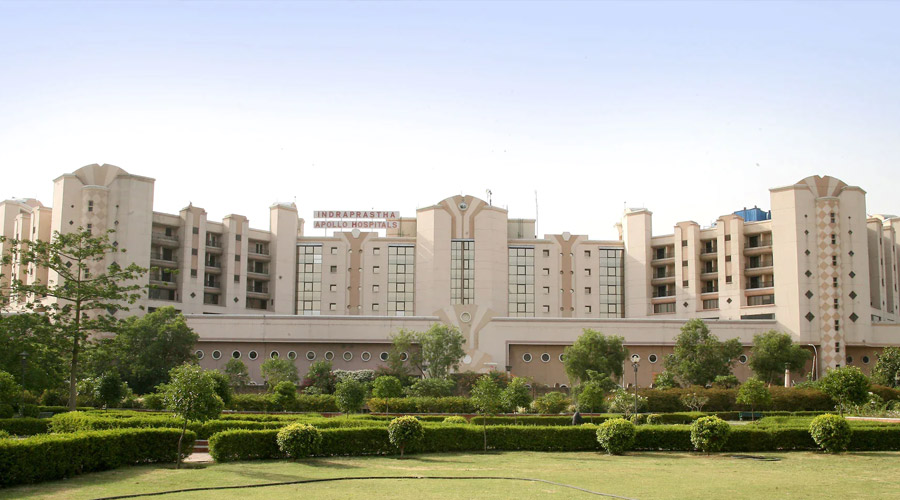
Indraprastha Apollo Hospital, New Delhi
Established in 1996, Indraprastha Apollo Hospital is NABL and JCI accredited. Apollo Group offers 10,000 beds across 64 hospitals, more than 2,200 pharmacies, over 100 primary care & diagnostic clinics and 115 telemedicine units across 9 countries. Indraprastha Apollo Hospital has 52 specialties under one roof.
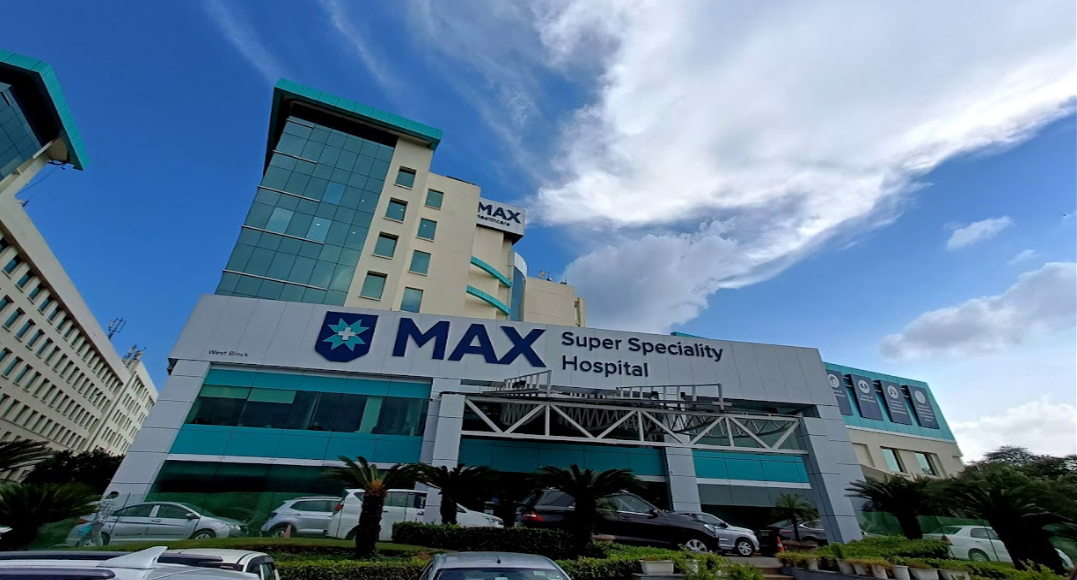
Max Super Speciality Hospital, Saket
Max Super Speciality Hospital Patparganj, Delhi has been one of the top medical care facilities for people living in India as well as internationally. It is home to one of the best speciality treatment centres with the best doctors renowned in India and internationally.
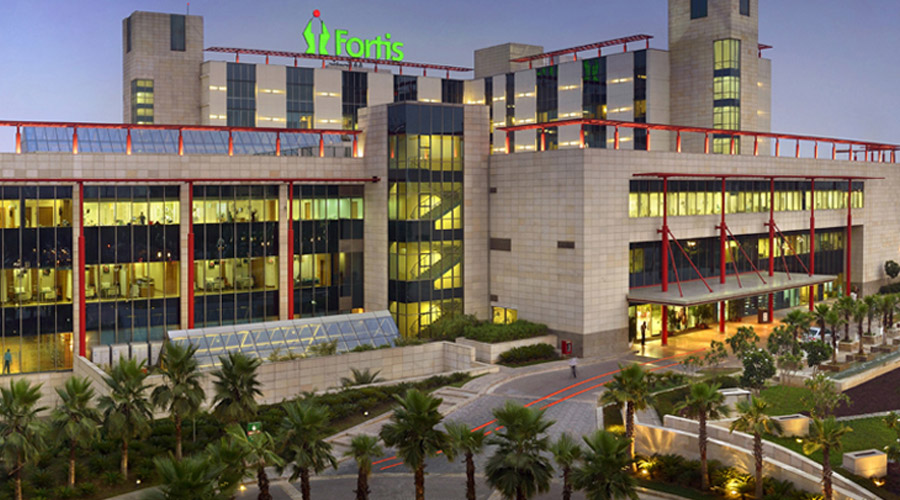
Fortis Memorial Research Institute – Gurugram, NCR Delhi
Fortis Memorial Research Institute (FMRI), a multi-super-specialty, quaternary care hospital, is considered as one of the best hospitals in Gurgaon. Fortis Hospital, Gurgaon, has undergone a thorough on-site review of the quality and safety of care being provided and is committed to continuously meeting rigorous international standards.
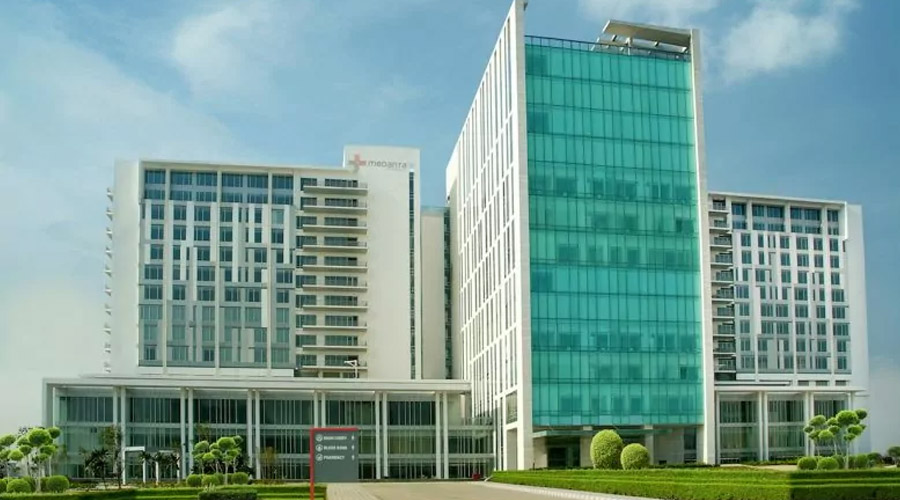
Medanta – Multi-Super Specialty Hospital
Medanta – The Medicity is one of India’s largest multi-super specialty institutes located in Gurgaon, a bustling town in the National Capital Region. Founded by eminent cardiac surgeon, Dr. Naresh Trehan, the institution has been envisioned with the aim of bringing to India the highest standards of medical care along with clinical research, education and training.
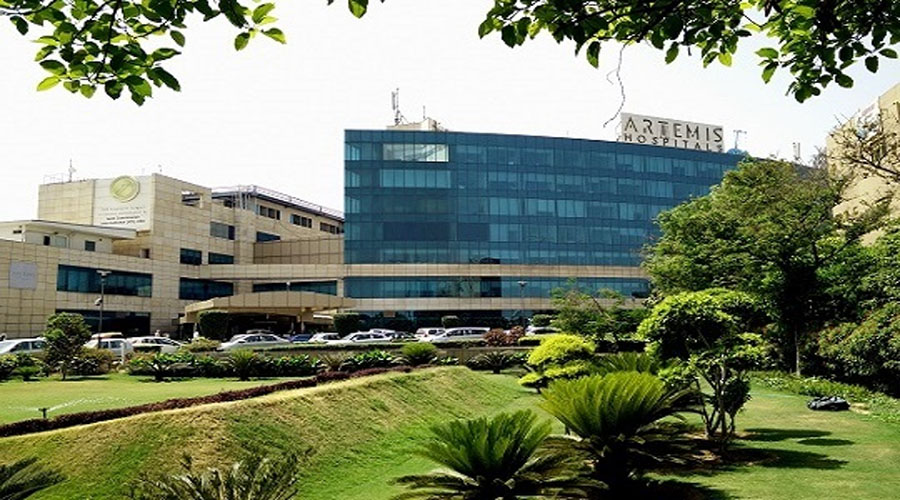
Artemis Hospital – Gurugram, NCR Delhi
Artemis Health Institute, established in 2007, is a healthcare venture launched by the promoters of the Apollo Tyres Group. Artemis is the first Hospital in Gurgaon to get accredited by Joint Commission International (JCI) (in 2013). It is the first Hospital in Haryana to get NABH accreditation within 3 years of start up.
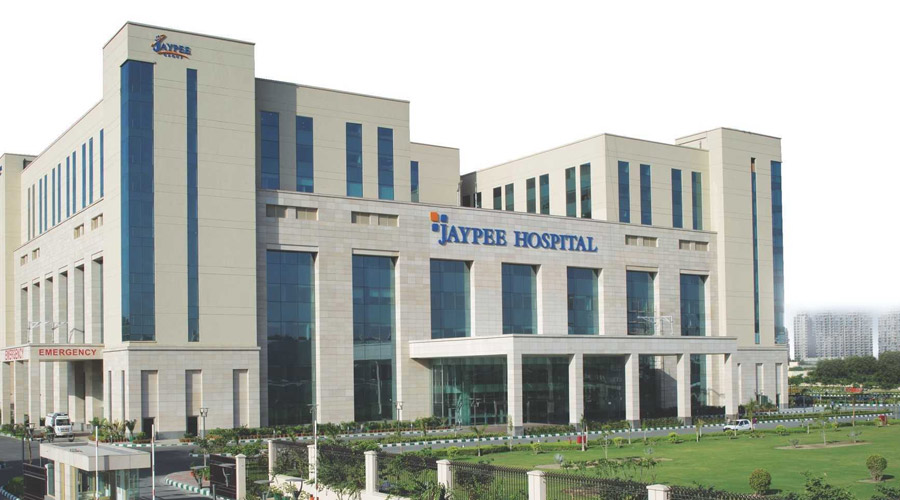
Jaypee Multi-Super Speciality Hospital – Noida
The Jaypee Hospital was conceptualized by our revered Founder Chairman, Shri Jai Prakash Gaur with the vision of promoting world-class healthcare amongst the masses by providing quality and affordable medical care with commitment.
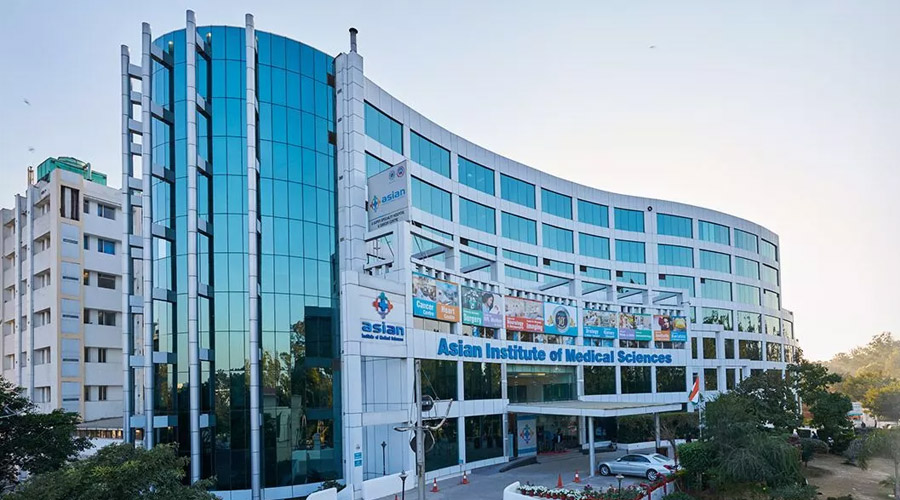
Asian Institute of Medical Sciences
425-bedded super speciality tertiary care hospital is truly futuristic in its services & technology and brings together some of the most talented medical professionals in India. The hospital has been accredited with NABH and NABL accreditations and is equipped with state-of-the-art technology.
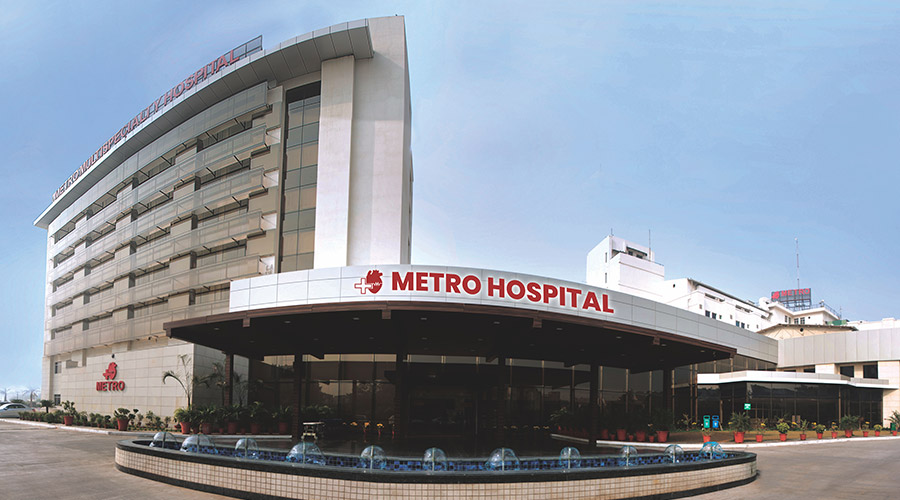
Metro Heart Institute with Multispeciality
Metro Group of Hospitals is a group of 11 hospitals and 1 college (Metro College of Health Sciences and Research), having more than 2500 beds flourishing hospitals and leading one of the biggest group of hospitals in India.

QRG Super Speciality Hospital
QRG Super Speciality Hospital isn’t just another hospital but an amalgamation of the best services the healthcare segment can offer. Our excellent medical infrastructure houses a Critical Care Medicine unit for patients with life threatening diseases.

Sanar International Hospital – Gurugram
Founded by Mr. Naresh Kapoor in the year 2018 Sanar International Hospitals offers comprehensive advanced surgical care in specialties like Cancer, Heart, Blood and Marrow Transplant, Lung, Liver, and Neurosciences along with other major departments with advanced state-of-the-art facilities.
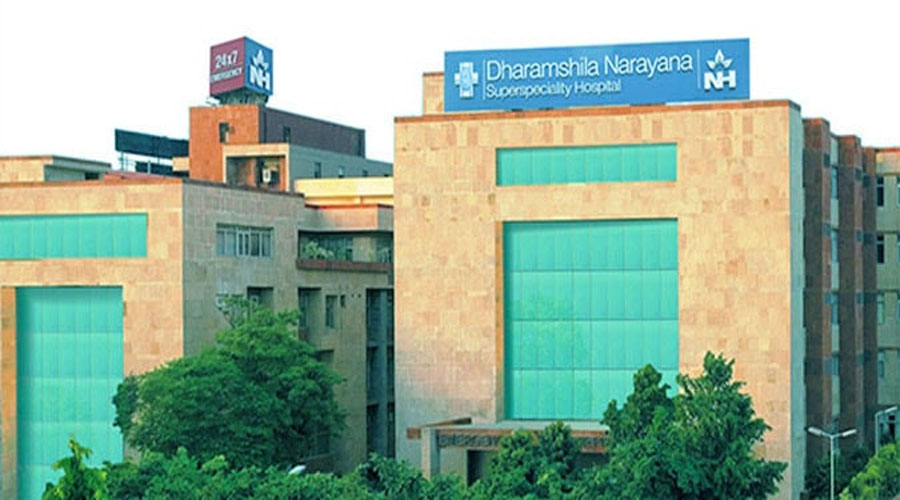
Dharamshila Narayana Superspeciality Hospital, New Delhi
For over two decades, Dharamshila Narayana Superspeciality Hospital (Earlier known as Dharamshila Hospital And Research Centre till 31.03.2017) at Vasundhara Enclave in Delhi-NCR region was at the forefront of cancer treatment. On 1st April 2017, the unit began its partnership with Narayana Health, one of India’s largest network of hospitals and heart centres and started operations as Dharamshila Narayana Superspeciality Hospital.


